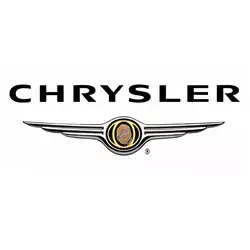Chrysler Sebring Tire Pressure
Most common recommended tire pressure for Chrysler Sebring can range from 30 psi to 32 psi depending on year of production, trim and OEM tire size, but it maybe different for older models. It is imperative to confirm the exact tire inflation for your Chrysler Sebring to ensure safety on the road. Always refer to your vehicle owner's manual for the correct tire pressure designated by vehicle's manufacturer.
Select your Chrysler Sebring production year to see its recommended tire inflation.
| Model Year | Front Tires | Rear Tires |
|---|---|---|
| 2010 Chrysler Sebring | 32 psi | 32 psi |
| 2009 Chrysler Sebring | 32 psi | 32 psi |
| 2008 Chrysler Sebring | 32 psi | 32 psi |
| 2007 Chrysler Sebring | 32 psi | 32 psi |
Recommended Tire Pressure for Chrysler Sebring
Maintaining the recommended tire pressure for a Chrysler Sebring is crucial for several reasons, directly impacting safety, performance, and financial considerations. First and foremost, the proper tire inflation ensures optimal traction and handling characteristics, which are vital for maintaining control of the vehicle in various driving conditions, thereby significantly reducing the risk of accidents. Additionally, tires inflated to the manufacturer's recommended levels are less susceptible to uneven wear, extending their life and saving money in the long run. Properly inflated tires also contribute to fuel efficiency, as under-inflated tires increase rolling resistance, forcing the engine to work harder and consequently consume more fuel. For the Chrysler Sebring, adhering to the recommended tire pressure also ensures that the vehicle's load-carrying capacity is not compromised, preserving the structural integrity of the tires under the specific weight of the vehicle. Overall, maintaining the correct tire pressure is an easy yet essential aspect of vehicle maintenance that enhances safety, optimizes performance, and can lead to significant cost savings over the life of the vehicle.

All listed guides, data and/or calculations are for informational purposes only. TirePressure.com does not warrant or make any representations regarding the accuracy of or the results of the use of this information. Always refer to vehicle owner's manual for the correct tire pressure configuration.